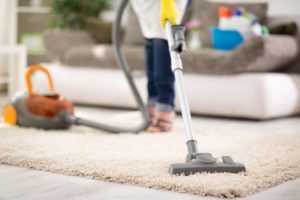How’s the Air Quality at Your Elderly Loved One’s Home?
When it comes to air pollution, most people think about smog in big cities or factories with tall smoke stacks. However, indoor air pollution has gotten some attention in recent years as researchers take a look at how air quality affects people, especially the elderly. Seniors that spend a lot of time at home care about their health and feel that their house or apartment is safe for the most part. However, the air inside may be having a serious effect on how they feel from day to day.
Measuring Indoor Air Quality.

Home Care in Fairfax VA: Indoor Air Quality
Indoor air quality deals with the level of pollutants and irritants in the air within a structure. Exposure to pollutants can have a negative effect on health, so learning more about indoor air quality and how to control it is important. Common indoor pollutants include dust, dust mites, skin cells, mold, spores, bacteria, smoke, chemical toxins, pollen, dirt, carbon monoxide, radon and dander. When these pollutants are brought or released indoors, they build up and become concentrated in small spaces. People breathe in the pollutants repeatedly, exposing the body to a number of irritants and toxins.
Indoor air quality can be measured using a simple device called Volatile Organic Compound sensor. It detects different components in the air of any given room. There are professional companies that can measure the air quality and provide detailed reports. However, family caregivers don’t need a fancy device to boost the air quality in their elderly loved one’s home, especially if they have pets, smoke or use lots of chemical and aerosol products.
Effects of Poor Air Quality on Seniors.
Harmful health effects from indoor pollutants can have immediate negative effects, and also cause long-term problems with repeated exposure. Some of the immediate effects to seniors that are exposed to poor air quality include sneezing, coughing, eye irritation, dizziness, headaches, sore throats and fatigue. Long-term health problems due to repeated exposure include asthma, respiratory disease, heart disease and even cancer. Poor air quality can have a hand in seniors that develop new illnesses because it weakens their immune system, making it harder for them to resist germs.
Boosting the Air Quality.
Fortunately, there are many free and low-cost ways to improve poor air quality in an elderly loved one’s home. The most important thing to do is to stop smoking cigarettes indoors. Another act that will provide fast results is vacuuming twice per week. Family caregivers or home care assistants should make sure to change the vacuum bag regularly and clean the machine’s air filter often. Changing the home’s air filter is another thing that will help reduce the particles in the air.
Other things that people can do to improve air quality Is to open the windows and let fresh air in. However, on windy days or days when the news reports bad air quality, turn to the air conditioner instead. Frequently bathing pets, reducing the use of aerosol sprays indoors and bringing in air-cleaning house plants can also have a big impact. If the air is particularly bed, consider investing in an electric air purifier. These are just some of the ways that elderly loved ones can enjoy cleaner air and therefore better health.
If you or an aging loved one are considering home care in Fairfax, VA, call the caring staff at Medical Professionals On Call today. 703-273-8818
Source:
http://www.webmd.com/lung/features/12-ways-to-improve-indoor-air-quality#3
- Do Your Parents Face More Challenges When They Live in a Rural Community? - November 6, 2019
- Ways to Ease Arthritis Symptoms in the Elderly - October 24, 2019
- Tips for a Better Life with Fibromyalgia - October 9, 2019
